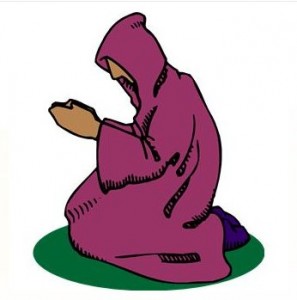
Liberation is the release of our consciousness from the clutches of the ego. Many of us feel that we have to renounce the world and become monks to achieve liberation. After all meditation and spiritual practice need a lot of time and effort. But is this right? When is renunciation of the world appropriate? This article explores.
When does renunciation turn into fleeing? If we remain firmly entrenched in our egos and try to adapt the life of an ascetic then that is fleeing. There is no spiritual upliftment in giving up the world because it is too much trouble. Before renunciation can become external it has to be internal first. We should have reached some level of internal renunciation and spiritual maturity before we can embrace the life of an ascetic. If we are not there yet and we choose to renounce the world it may turn into a form of escapism.
Just because a person is on a spiritual path does not mean that she can elude problems. We all have to face our shares of problems, but a person on a spiritual path faces them in a different way than somebody who is engrossed in the ego. For a person engrossed in the ego a problem becomes a melodrama. Turning a problem into drama is the ego’s way to keep us engrossed in its concerns. The ego knows that as long as we identify ourselves with its problems it is safe. The spiritual person on the other hand does not see life-problems as mega issues. Drama is reduced and problems are faced with equanimity. For a person on a spiritual path there is differentiation between the ego and the Self. There is no need to make the ego’s problems our own. A problem can now be seen as an opportunity to learn to differentiate ourselves from our ego. The separation of ourselves from the ego provides us with a context to view problems and this takes away much of the emotional sting.
Our first steps into liberation and a deeper spiritual journey begins when we stand our ground and learn to face up to our problems. This happens because facing them teaches us a deep spiritual insight: We are not our egos.
Related: Who Am I?
